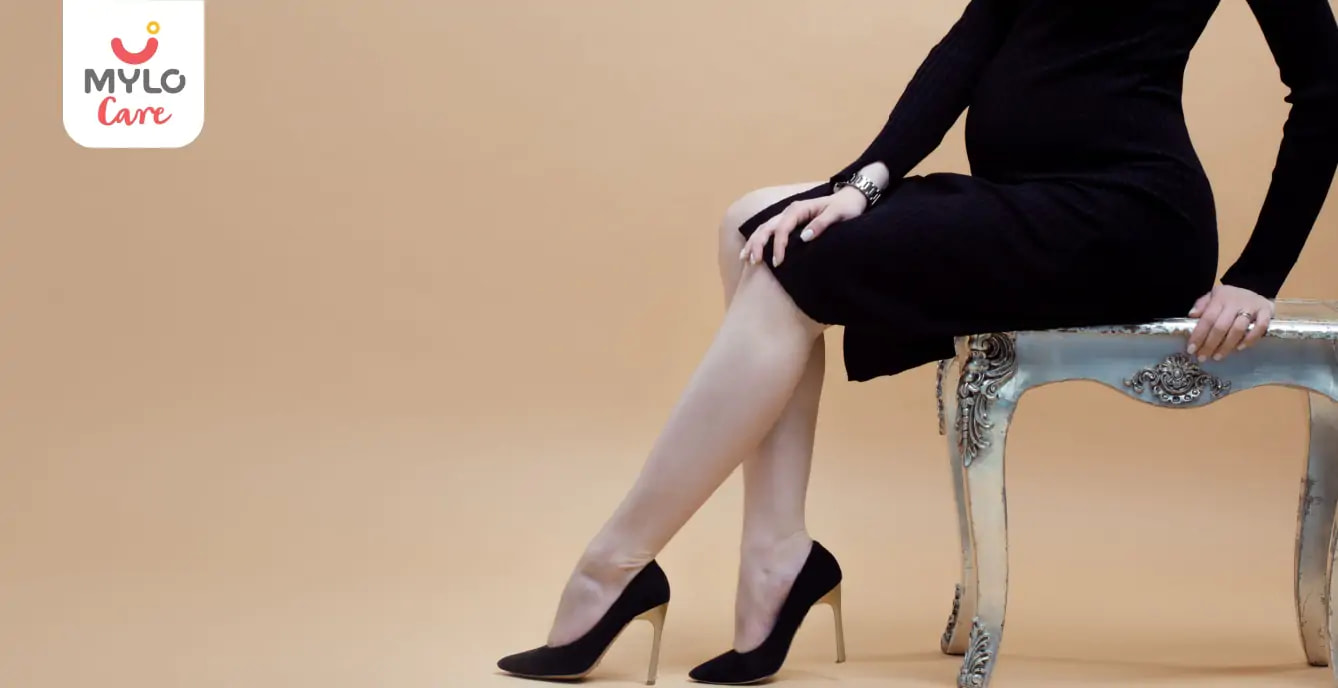Get MYLO APP
Install Mylo app Now and unlock new features
💰 Extra 20% OFF on 1st purchase
🥗 Get Diet Chart for your little one
📈 Track your baby’s growth
👩⚕️ Get daily tips

OR


Article Continues below advertisement
- Home

- Comfort vs. Style: The Pros and Cons of Wearing Heels During Pregnancy
In this Article
- Pros of wearing heels in pregnancy
- 1. Enhanced posture and confidence
- 2. Fashion-forward
- 3. Leg-lengthening effect
- Cons of wearing high heels during pregnancy
- 1. Increased risk of falls
- 2. Strain on the feet and lower back
- 3. Potential complications
- Potential risks and complications
- Alternatives to wearing high heels during pregnancy
- 1. Flats
- 2. Wedges
- 3. Low-heeled shoes
- 4. Sneakers
- Tips for wearing heels safely during pregnancy
- 1. Choose a lower heel
- 2. Invest in supportive shoes
- 3. Avoid thin heels
- 4. Take frequent breaks
- 5. Listen to your body
- The Bottomline
 1876
1876Comfort vs. Style: The Pros and Cons of Wearing Heels During Pregnancy
Updated on 6 March 2024
Pregnancy is a beautiful journey that brings about numerous changes in a woman's body. As the body undergoes various transformations, including weight gain and hormonal fluctuations, the choice of footwear becomes a crucial decision. The debate between comfort and style intensifies when it comes to wearing heels during pregnancy. On one hand, heels can add a touch of elegance and confidence, while on the other, they may pose risks and complications.
Pros of wearing heels in pregnancy
Let us understand the key benefits of wearing heels for pregnant women:
1. Enhanced posture and confidence
Wearing heels can improve posture by aligning the spine and encouraging a straighter stance. This can provide relief from the added weight of pregnancy, alleviating strain on the lower back and reducing discomfort. Additionally, heels often boost confidence, allowing pregnant women to feel stylish and put-together.
Article continues below advertisment
2. Fashion-forward
Heels are undeniably fashionable, adding a touch of sophistication to any outfit. Many pregnant women enjoy expressing their personal style and maintaining a sense of fashion during this transformative period. With the right pair of heels, you can elevate your maternity wardrobe and feel like yourself, despite the physical changes occurring.
3. Leg-lengthening effect
Heels have the power to elongate the legs, giving the illusion of height and adding a flattering touch to any ensemble. This can be particularly beneficial during pregnancy when some women may feel self-conscious about their changing body shape. The leg-lengthening effect of heels can boost confidence and help pregnant women embrace their evolving figure.
Cons of wearing high heels during pregnancy
Here are some key disadvantages of wearing heels in pregnancy:
1. Increased risk of falls
One of the primary concerns of wearing heels is the increased risk of falls during pregnancy. As the body undergoes changes and weight distribution alters, maintaining balance becomes more challenging. Heels, especially high ones, can further compromise stability, raising the likelihood of tripping or stumbling. Falls during pregnancy can have severe consequences for both the mother and the baby, making it crucial to prioritize safety.
2. Strain on the feet and lower back
Pregnancy already places additional strain on the feet and lower back due to weight gain and hormonal changes. Wearing heels exacerbates this strain by further altering the body's center of gravity and placing excessive pressure on certain areas. Prolonged wear of heels can lead to foot pain, swelling, and discomfort, making it essential to prioritize comfort during this delicate period.
Article continues below advertisment
3. Potential complications
Wearing heels can potentially lead to various complications in pregnancy. These may include ankle sprains, muscle imbalances, and even changes in gait and posture. In severe cases, wearing heels could contribute to the development of conditions such as plantar fasciitis or varicose veins. It is crucial to be aware of these potential risks and consider them when deciding on footwear options.
Potential risks and complications
While the cons of wearing heels during pregnancy have been addressed, it is important to dive deeper into the potential risks and complications associated with this choice. Wearing heels can significantly increase the chances of falls, which can result in injuries to both the mother and the baby. A fall during pregnancy could lead to fractures, sprains, or even placental abruption, posing significant risks to the well-being of both individuals.
Furthermore, the strain placed on the feet and lower back can exacerbate existing pregnancy-related discomforts such as edema and back pain. It can also contribute to the development of musculoskeletal issues, including joint instability and postural imbalances. These complications can have long-term effects on the mother's overall health and well-being.
Alternatives to wearing high heels during pregnancy
For those who wish to forgo heels during pregnancy, there are numerous alternatives that offer both style and comfort. Consider the following options:
1. Flats
Flat shoes, such as ballet flats or loafers, provide a comfortable and stylish alternative to heels. They offer support and stability while allowing for natural foot movement. Opt for flats with cushioned insoles and supportive arches to maximize comfort.
Article continues below advertisment
2. Wedges
Wedges offer the height and leg-lengthening effect of heels without compromising stability. The wider base provides better balance and reduces the risk of falls. Look for wedges with adjustable straps or elasticized bands for added comfort.
3. Low-heeled shoes
If you are not ready to give up on heels entirely, opt for low-heeled shoes with a wider heel base for better stability. Choose heels that are no higher than two inches and provide adequate arch support to minimize strain on the feet and lower back.
4. Sneakers
Sneakers have become increasingly fashionable in recent years, offering a comfortable and trendy footwear option during pregnancy. Look for supportive sneakers with cushioned soles and breathable materials to keep your feet comfortable throughout the day.
You may also like: Maternity Fashion: How to Dress in Style in Each Trimester of Your Pregnancy?
Tips for wearing heels safely during pregnancy
If you still choose to wear heels during pregnancy, follow these safety tips to minimize risks and ensure comfort:
Article continues below advertisment
1. Choose a lower heel
Opt for heels no higher than two inches to reduce strain on the feet and lower back. Lower heels provide better stability, reducing the risk of falls.
2. Invest in supportive shoes
Look for heels with cushioned insoles and arch support to provide comfort and minimize discomfort. Avoid pointed-toe styles that can squeeze the toes and contribute to foot pain.
3. Avoid thin heels
Stiletto heels can be particularly unstable during pregnancy. Choose heels with a wider heel base to improve balance and reduce the risk of falls.
4. Take frequent breaks
Avoid wearing heels for extended periods. Take breaks, remove your shoes, and allow your feet to rest and recover. Consider keeping a pair of comfortable flats in your bag for when you need a break from heels.
5. Listen to your body
Pay attention to any discomfort or pain while wearing heels. If you experience any discomfort, it is essential to prioritize your well-being and switch to more comfortable footwear.
Article continues below advertisment
You may also like: 7 Important Points to Remember While Buying Maternity Wear During Pregnancy
The Bottomline
The debate between comfort and style when it comes to wearing heels during pregnancy is a personal one. While heels can offer a touch of elegance and help maintain a sense of fashion, they also pose risks and complications. It is crucial to weigh the pros and cons, considering factors such as individual comfort, stage of pregnancy, and any underlying health conditions. Ultimately, the most important aspect is prioritizing the well-being of both the mother and the baby.



Written by
Anupama Chadha
Anupama Chadha, born and raised in Delhi is a content writer who has written extensively for industries such as HR, Healthcare, Finance, Retail and Tech.
Read MoreGet baby's diet chart, and growth tips

Related Articles
RECENTLY PUBLISHED ARTICLES
our most recent articles
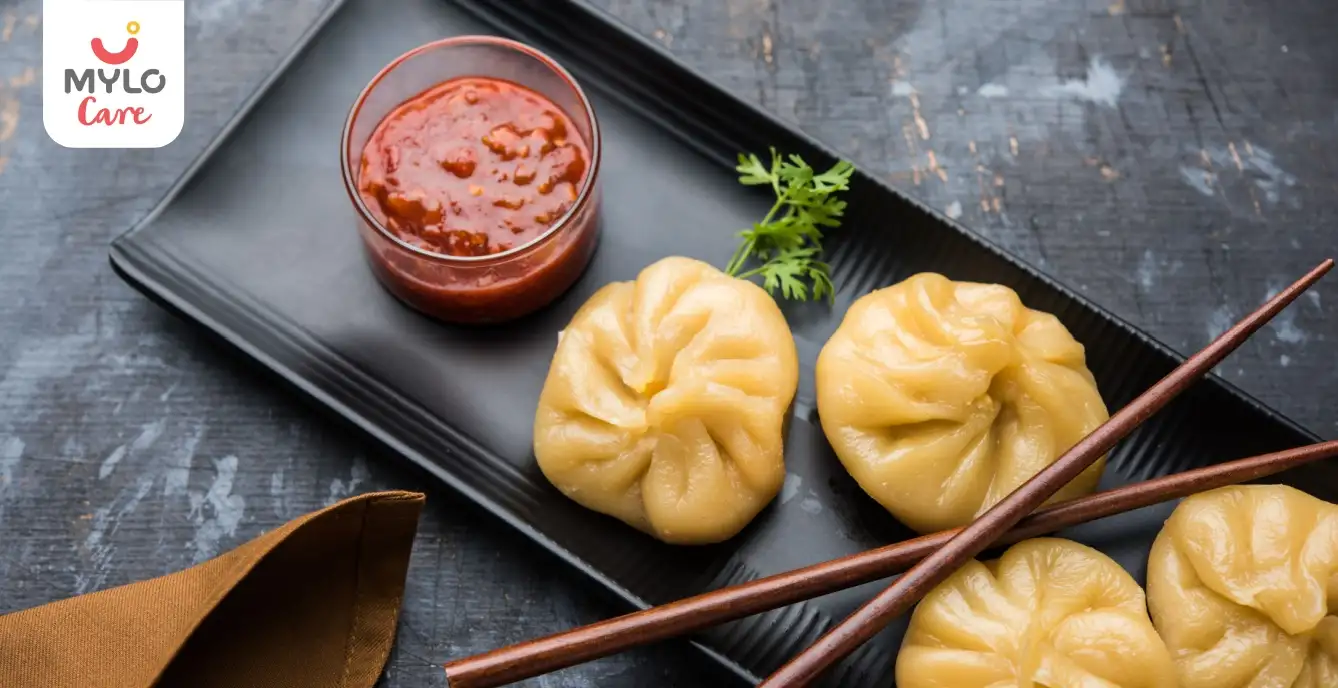
Food Cravings
A Mom-to-Be's Handbook to Safely Savoring Momos in Pregnancy
(17,580 Views)

Diet & Nutrition
Chicken During Pregnancy: The Ultimate Guide to Safe and Nutritious Eating
(4,599 Views)

Diet & Nutrition
How To Prepare Food For Your Infant/Toddler Safely? Here Are Some Tips That You Must Not Forget While Preparing Food
(108,456 Views)
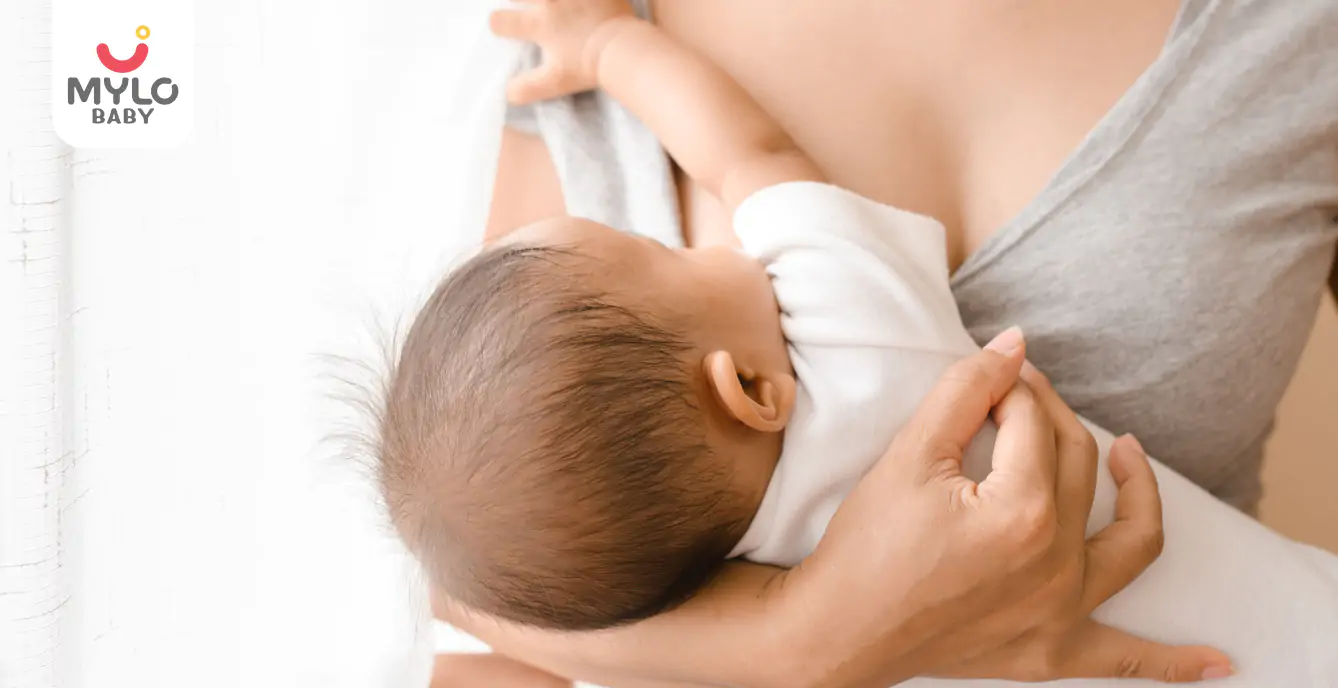
Lactational Amenorrhea Method: A Safe and Effective Contraception for Postpartum Moms
(18,260 Views)
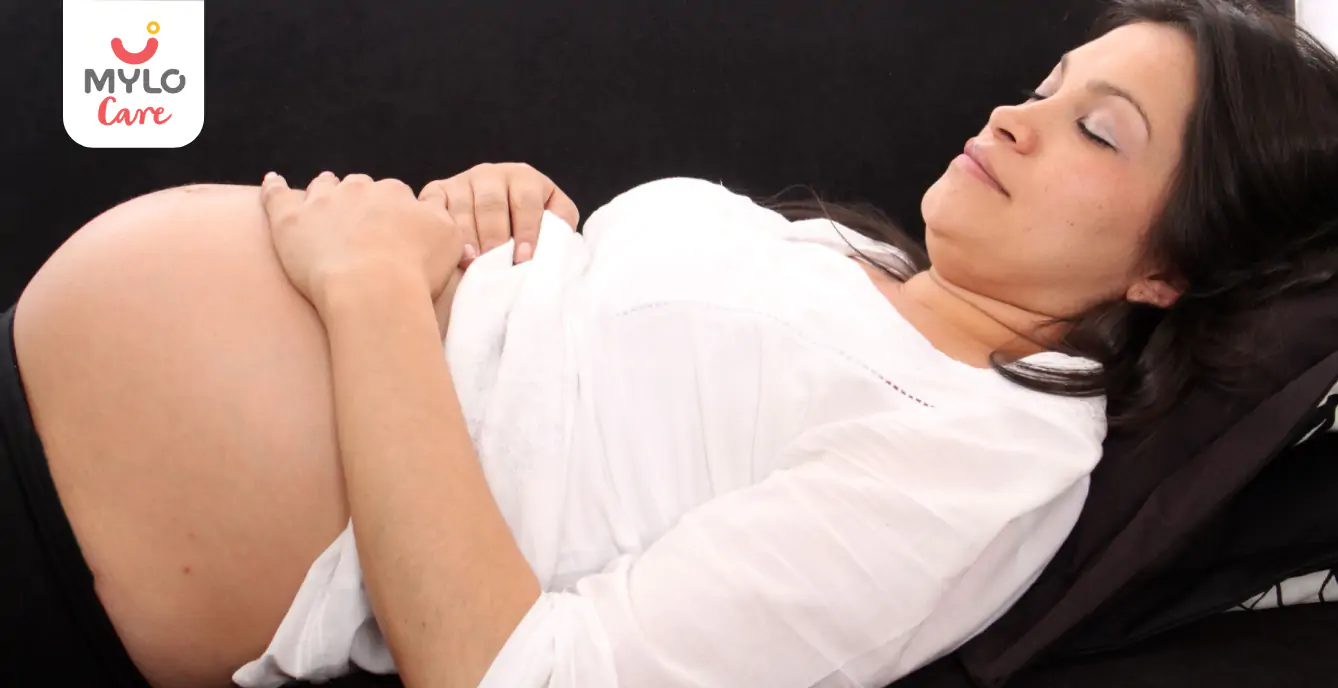
What to Do to Help Fall Asleep Faster During Pregnancy?
(101,120 Views)
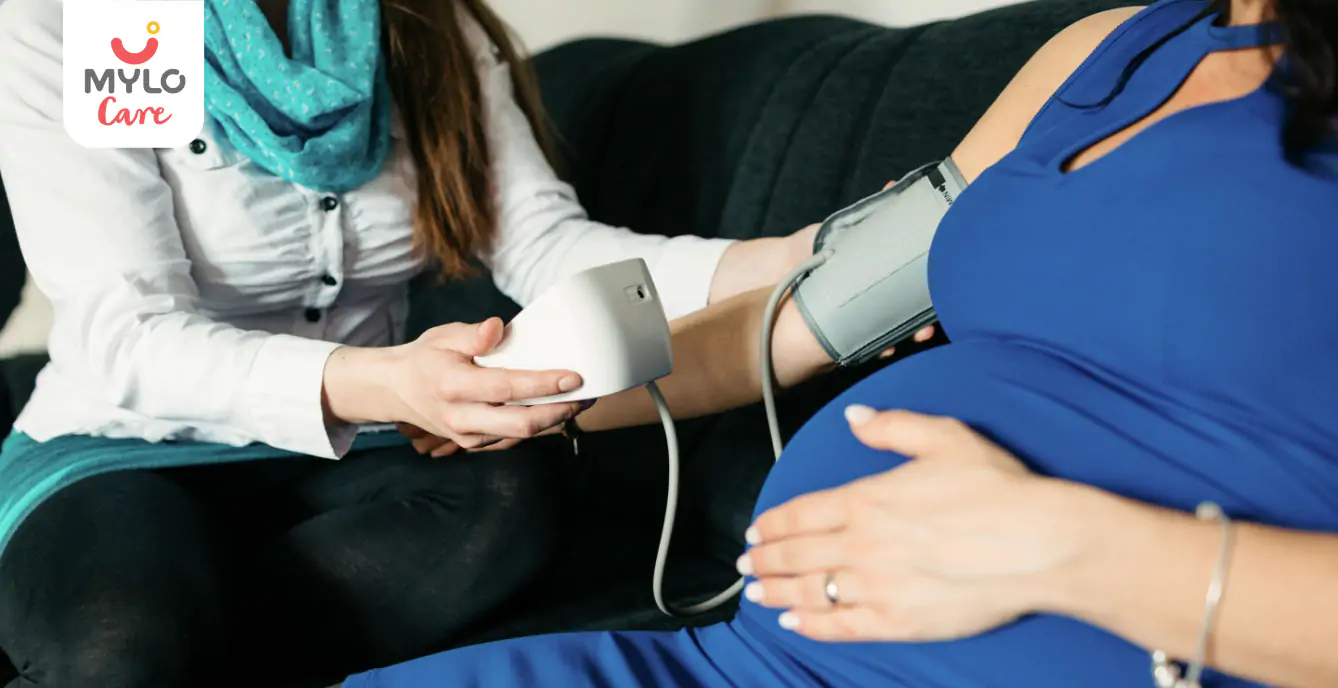
High Blood Pressure in Pregnancy
Home Remedies to Control High Blood Pressure in Pregnancy
(4,616 Views)
- Pizza During Pregnancy: Cravings, Comfort, and Caution for Moms-To-Be
- Baby Milestones for Development, Growth & Health in the First Year
- The Ultimate Collection of International Women's Day Quotes
- 10 Bold Web Series Streaming on Hotstar That Break the Mold
- The A-Z Guide to Identifying Vegetables Name in English for Children
- Grapes in Pregnancy: The Ultimate Guide to Benefits & Precautions
- Postpartum Exercise: What to Know About Exercising After Pregnancy
- Baby Crawling: A Parent's Guide to Baby's First Moves
- Postpartum Diet Plan: Your Postpartum Nutrition Guide
- The Ultimate Guide to Crafting the Perfect Baby Photoshoot
- Lupride Injection: How It Works and What You Need to Know
- Why are Some Women Recommended HCG Injection During Pregnancy?
- Sudden Infant Death Syndrome (SIDS): Meaning, Causes & Prevention
- Period After Abortion: What to Expect About Timing, Duration and Frequency


AWARDS AND RECOGNITION
Mylo wins Forbes D2C Disruptor award
Mylo wins The Economic Times Promising Brands 2022
AS SEEN IN
















At Mylo, we help young parents raise happy and healthy families with our innovative new-age solutions:
- Mylo Care: Effective and science-backed personal care and wellness solutions for a joyful you.
- Mylo Baby: Science-backed, gentle and effective personal care & hygiene range for your little one.
- Mylo Community: Trusted and empathetic community of 10mn+ parents and experts.
Product Categories
baby carrier | baby soap | baby wipes | stretch marks cream | baby cream | baby shampoo | baby massage oil | baby hair oil | stretch marks oil | baby body wash | baby powder | baby lotion | diaper rash cream | newborn diapers | teether | baby kajal | baby diapers | cloth diapers |



